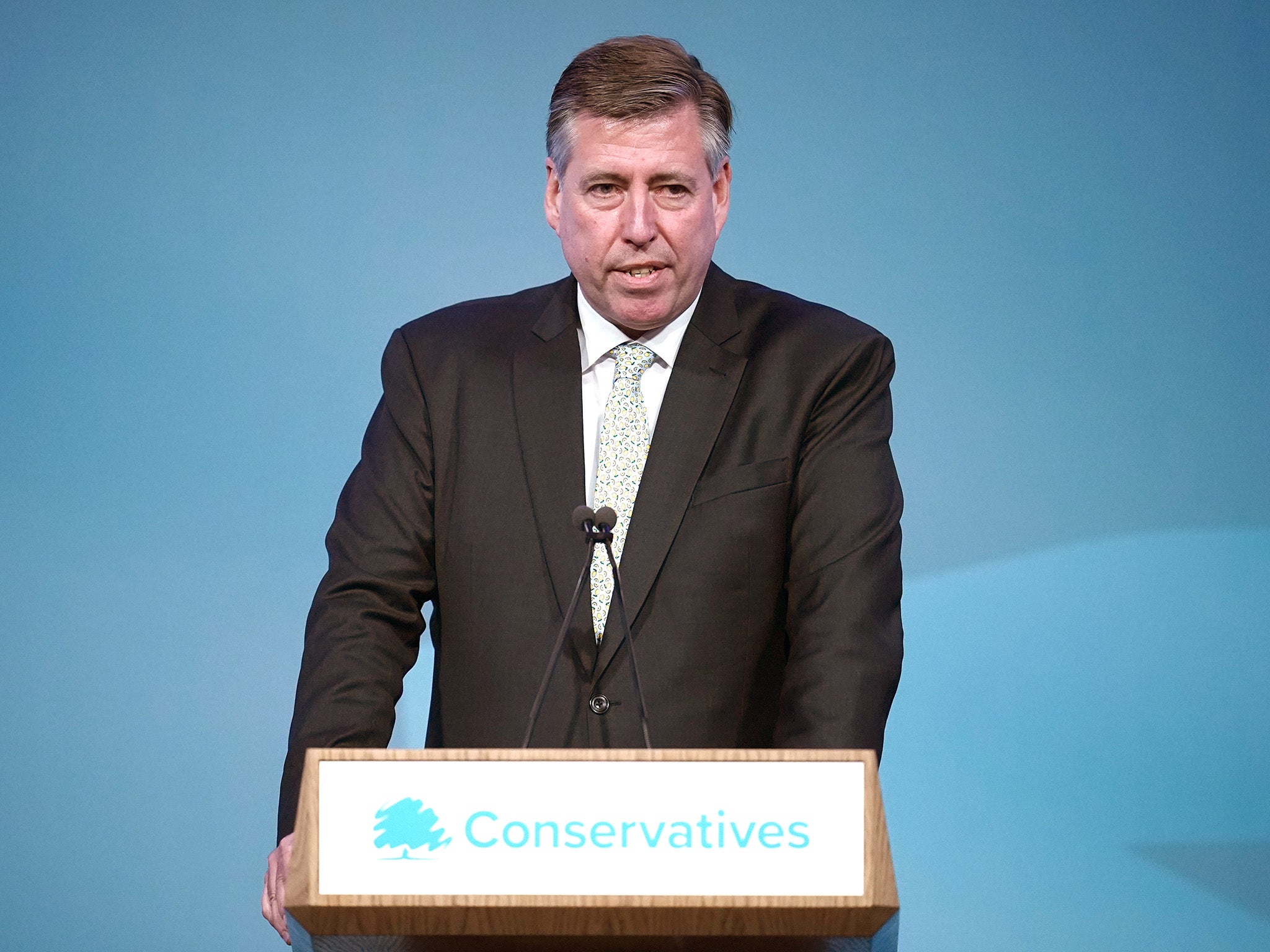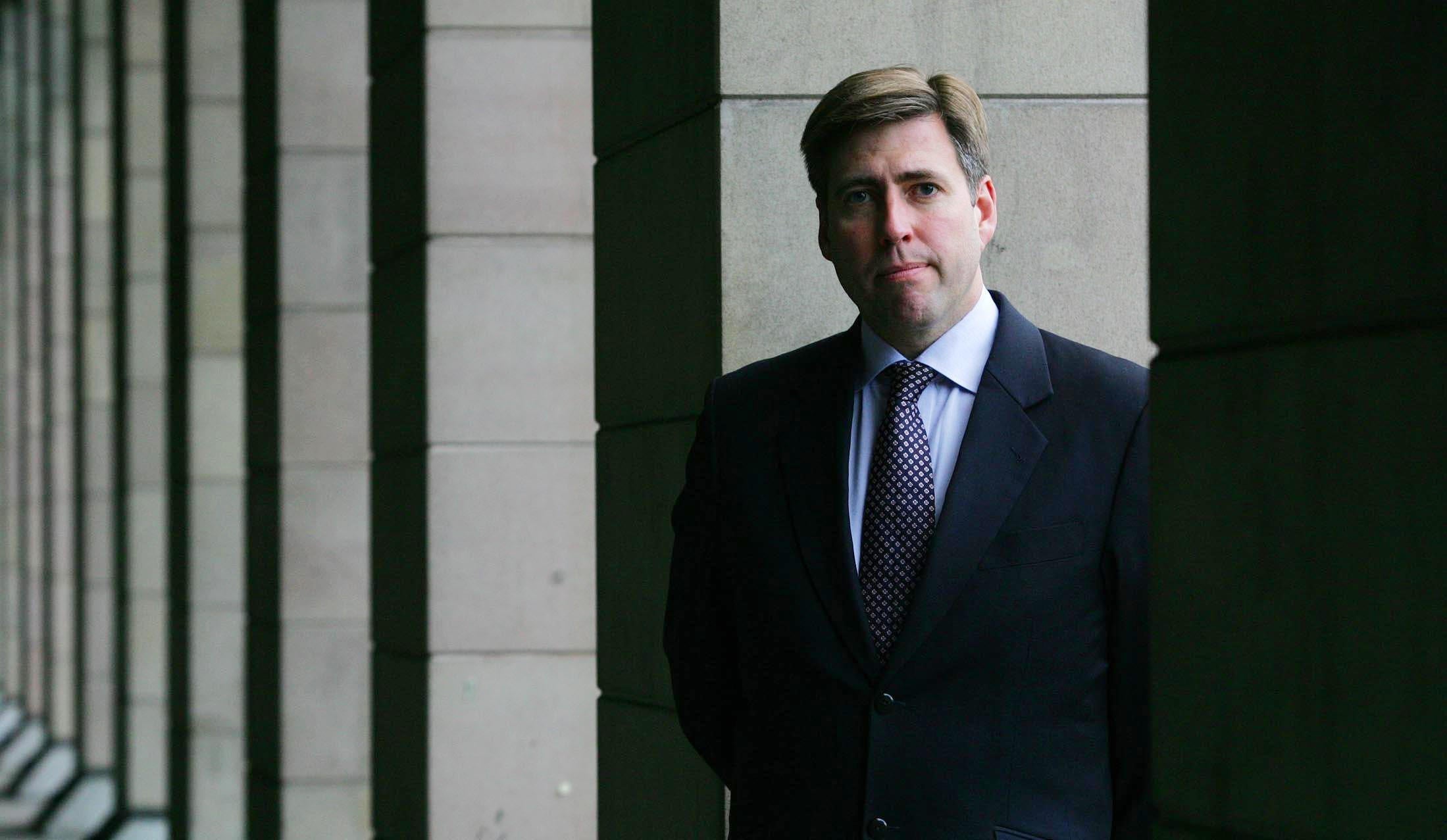Graham Brady: Who is chair of influential 1922 Committee of Tory backbenchers?
The long-standing representative of Conservative MPs is back in the spotlight and Liz Truss should be worried
Your support helps us to tell the story
From reproductive rights to climate change to Big Tech, The Independent is on the ground when the story is developing. Whether it's investigating the financials of Elon Musk's pro-Trump PAC or producing our latest documentary, 'The A Word', which shines a light on the American women fighting for reproductive rights, we know how important it is to parse out the facts from the messaging.
At such a critical moment in US history, we need reporters on the ground. Your donation allows us to keep sending journalists to speak to both sides of the story.
The Independent is trusted by Americans across the entire political spectrum. And unlike many other quality news outlets, we choose not to lock Americans out of our reporting and analysis with paywalls. We believe quality journalism should be available to everyone, paid for by those who can afford it.
Your support makes all the difference.Whenever a Tory leader lets slip their control of the party, a certain figure emerges from the darkest reaches of Westminster with a renewed purpose.
Sir Graham Brady does not come to save his ailing colleague. His return to prominence in fact suggests their time is short.
In Sir Graham, the highest representative of party backbenchers, Conservative MPs have a means of calling for their leader to be chucked out.
Letters demanding a vote of confidence are handed to the head of the 1922 Committee in private – though some MPs will tell the world of their submissions – and if he receives them from 15 per cent of the parliamentary party, Sir Graham will tell the Tory leader it is time for their fate to be decided by their MPs.
Sir Graham has held this unique role for all but a few of the months since David Cameron entered No 10 and has overseen confidence votes for the subsequent two Tory prime ministers, Theresa May and Boris Johnson, both of whom survived only to be forced out by other means months later.
He may soon have to call another vote, this time for Liz Truss, as more than 100 MPs are reportedly ready to submit letters to him after a calamitous start to the new prime minister’s term.
The old boy of Altrincham Grammar School is thought to have fancied himself for the top job in 2019, as he resigned the 1922 committee chair at the opening of the leadership campaign that crowned Mr Johnson.
He was also rumoured to consider standing to succeed Mr Johnson but remained in the post to which Tory MPs had reelected him twice again – with the second vote seeing opposition from former minister Heather Wheeler, allegedly at the behest of a No 10 irritated by Sir Graham’s rebellion against continuing lockdown restrictions.
Days before Sir Graham entered parliament in 1997, a Conservative spokeswoman picked out the then-29-year-old graduate of Durham law school as one of the party’s young stars alongside Mr Cameron.

The latter did not end up entering parliament until four years later by which time Sir Graham was in the opposition whips’ office, a couple years away from being Michael Howard’s parliamentary private secretary.
A successful shadow ministerial career ended in acrimony as Sir Graham resigned from Mr Cameron’s front bench in 2007 in protest at the future prime minister’s refusal to back grammar schools.
After all, Sir Graham did join the party at 16 years old to defend the selective status of his dear Manchester school. As he resigned he said that selection by ability in education had been replaced with selection by class and the means to afford a home near an outstanding comprehensive.
“Faced with a choice between a front bench position that I have loved and doing what I believe to be right for my constituents and for the many hundreds of thousands of families who are ill-served by state education in this country, there is in conscience only one option open to me,” he said.

Three years on, as Nick Clegg was dancing between the leaders of both main parties in the uncertain days after the 2010 election, Sir Graham was setting out his campaign for the 1922 chair.
His successful pitch was to portray himself as the keeper of the Tory backbenchers’ conscience. He won their support after pledging to constantly remind Mr Cameron not to take his MPs for granted.
In 12 years as the “shop steward” of Tory MPs, Sir Graham has broken with the practice of earlier chairs, who have largely operated in the background and refrained from public comment on political controversies.
He came out for Brexit in 2016 and successfully tabled an amendment in 2019 to replace Ms May’s Northern Ireland backstop with “alternative arrangements” to prevent a hard border after withdrawal. He was also prominent among the Covid Recovery Group of anti-lockdown Tory MPs.
Now he faces the prospect of holding a vote of confidence in a third Tory leader in four years. Sir Graham has proved more steady than his party.




Join our commenting forum
Join thought-provoking conversations, follow other Independent readers and see their replies
Comments